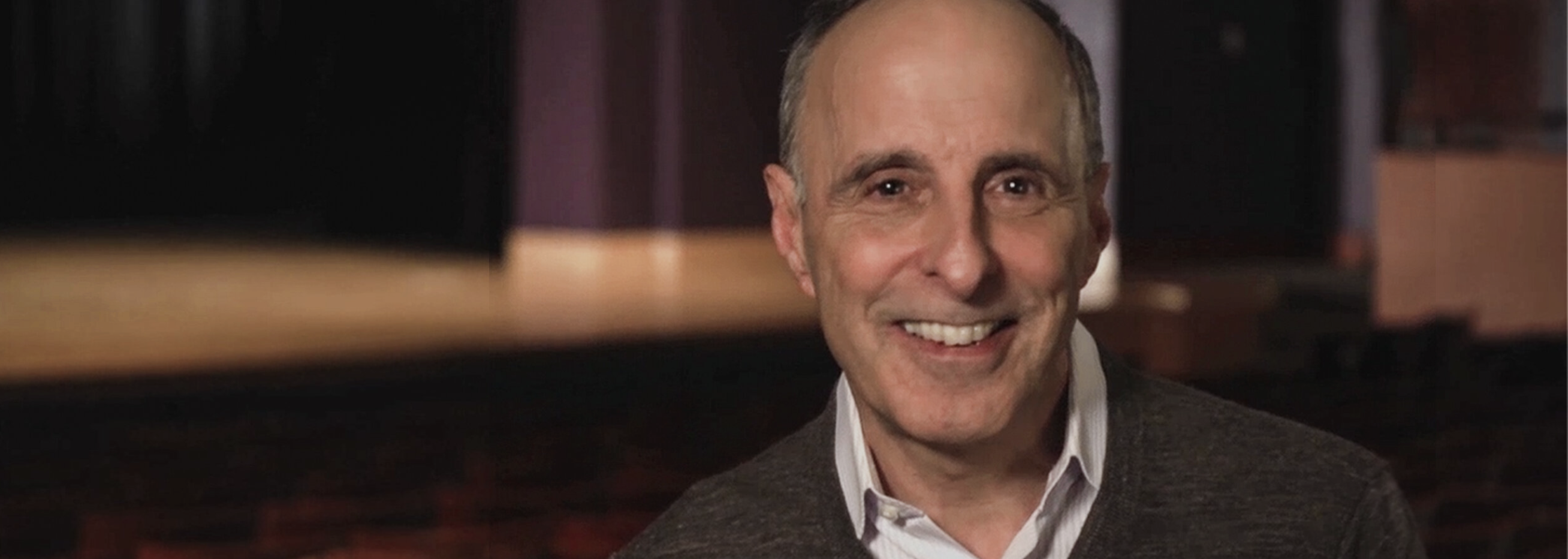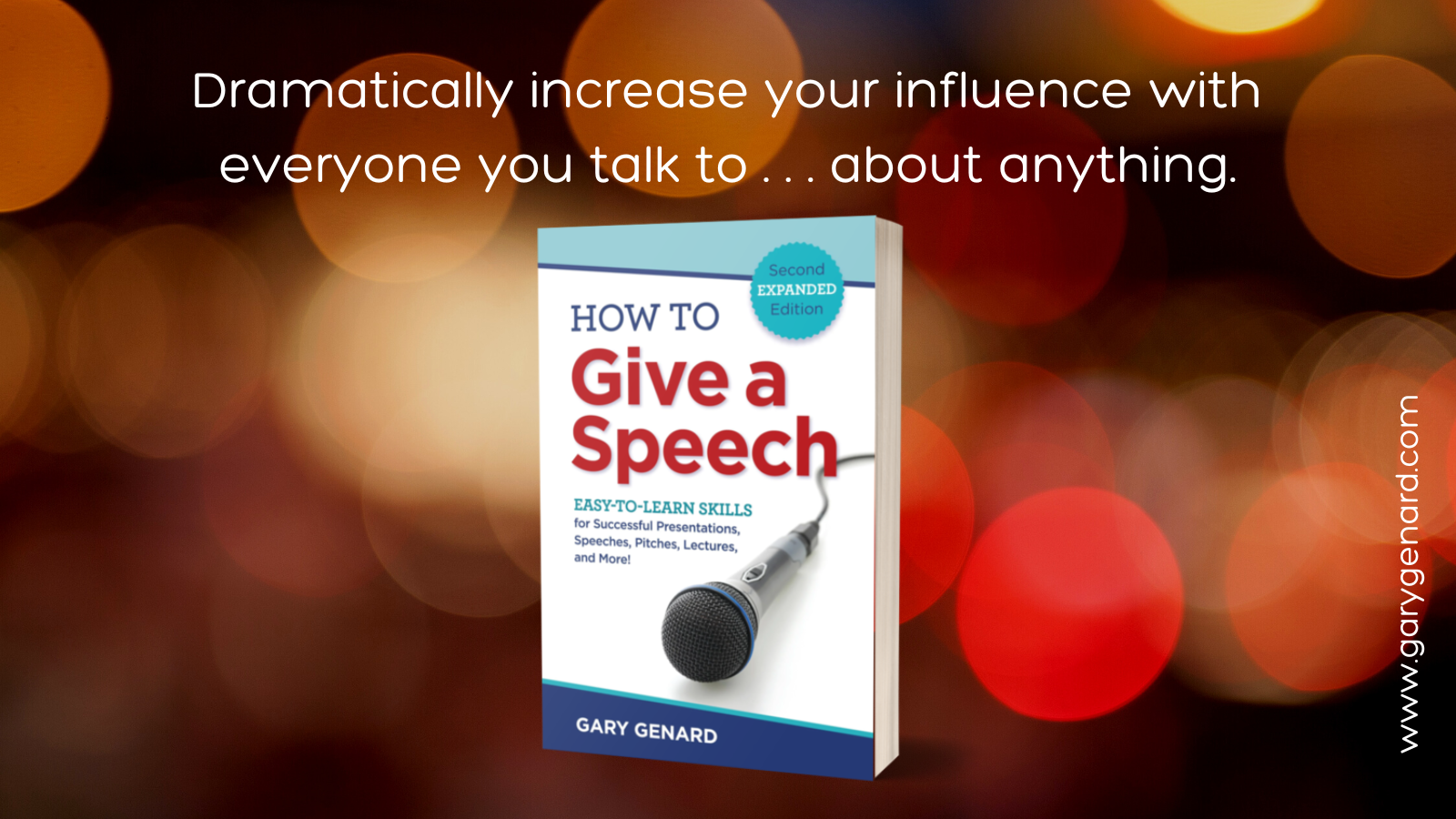Memorizing your speech . . . should you or shouldn't you? Here's the surprising truth about when memorization helps you nail a presentation!
What's the difference between a TED Talk and a telemarketing call? (No, this isn't the set-up of a joke.)
Among other markers of a quality performance, it's this: The telemarketer usually sounds like he or she is reading from a script. And the TED speech? Well, that talk is scripted out too—only the speaker doesn't make it sound that way.
Want to be a speaker who tells stories like that? See Chapter 3, "Organizing Your Materials and Telling Your Story," in my book, How to Give a Speech. Find it on Amazon.
Virtually all of the advice you'll find on memorizing your speech is the same: don't do it. But I'm not so sure. To be fair, I've said the same thing over the years to my executive speech coaching clients at The Genard Method. Lately, though, I've been revisiting this matter in my mind and re-examining my own assumptions. Blame it, in part, on the fact that I'm an actor.
Any actor—whether performing on a stage, in a film, recording an audio book, or in a gig making sales calls—prides himself or herself on the fact that it mustn't sound like someone reading. Add to that thought this question: which type of spoken performances are generally the most dramatic, the most memorable, and the most emotionally powerful? Aside from a remarkable political speech or one addressing a historic moment, what we're talking about here is acting.
Whether it's acting or presenting, a key element is focus. Use it to your advantage! Download my Free cheat sheet, "10 Ways to Stay Fully Focused When Speaking."
Do actors memorize their lines? You know they do! But their craft requires that they do it engagingly and in a way that doesn't sound canned. The problem with memorizing a speech, then, isn't the act of memorization itself. It's simply a bad performance in conveying the written material that makes the memorizing so obvious. That, as Hamlet said, is the rub.
As In All Public Speaking, the Key Is Performance
Again, think of actors: The whole point of a dramatic performance is to know the part line-by-line, but to make it sound spontaneous and real. It's called "the illusion of the first time." As a speaker, you should be giving your audience the same impression. Listeners—the people who share your interest or dedication to the topic—need to hear your thinking as you develop your argument, as your personality connects to what you're saying. As British director John Barton wrote while referring to acting performances, you should invent the phrase as you say it.
Are you leading when you speak? You should be. And of course, leadership is a performance art! Learn more in my book, Speak for Leadership. Find it here on Amazon.
Obviously, reading a script isn't going to lend your delivery spontaneity and honesty on its own. You need to work at making it sound natural and fresh. Believe me, you don't have to be an actor to do this. If you learn how to develop exceptional presentation skills, you can make it happen.
So . . . Should You or Shouldn't You?
Remember, motivational speakers don't speak from notes. To deliver an impactful address in precisely the amount of time a meeting or conference calls for, they need to shape their talk, know it cold, and be able to reproduce it time and time again. To do that, they memorize their keynote speeches.
How about you? As in all things concerned with public speaking, the answer to the "memorize or not" question is contingent and situational. That is, the key considerations are the type of presentation you're giving, and whether you (and your audience) would be best served by a fully memorized and dynamically delivered speech. If necessity is the mother of your personal inventiveness, and leads you to add this dimension to your speaking repertoire, don't necessarily be cowed by the conventional advice.
A last suggestion: don't hesitate at all when it comes to memorizing the first minute and last minute of your talk. This will help your message get through to people when they're paying the most attention. And will give you confidence in the first couple of minutes when you're likely to be nervous.
This article was first published in 2019. It is updated here.
You should follow me on Twitter here.

Gary Genard is an actor, author, and expert in public speaking and overcoming speaking fear. His company, The Genard Method offers live 1:1 Zoom executive coaching and corporate group training worldwide. In 2022 for the ninth consecutive year, Gary has been ranked by Global Gurus as One of the World’s Top 30 Communication Professionals. He is the author of the Amazon Best-Seller How to Give a Speech. His second book, Fearless Speaking, was named in 2019 as "One of the 100 Best Confidence Books of All Time." His handbook for presenting in videoconferences, Speaking Virtually offers strategies and tools for developing virtual presence in online meetings. His latest book is Speak for Leadership: An Executive Speech Coach's Secrets for Developing Leadership Presence. Contact Gary here.





